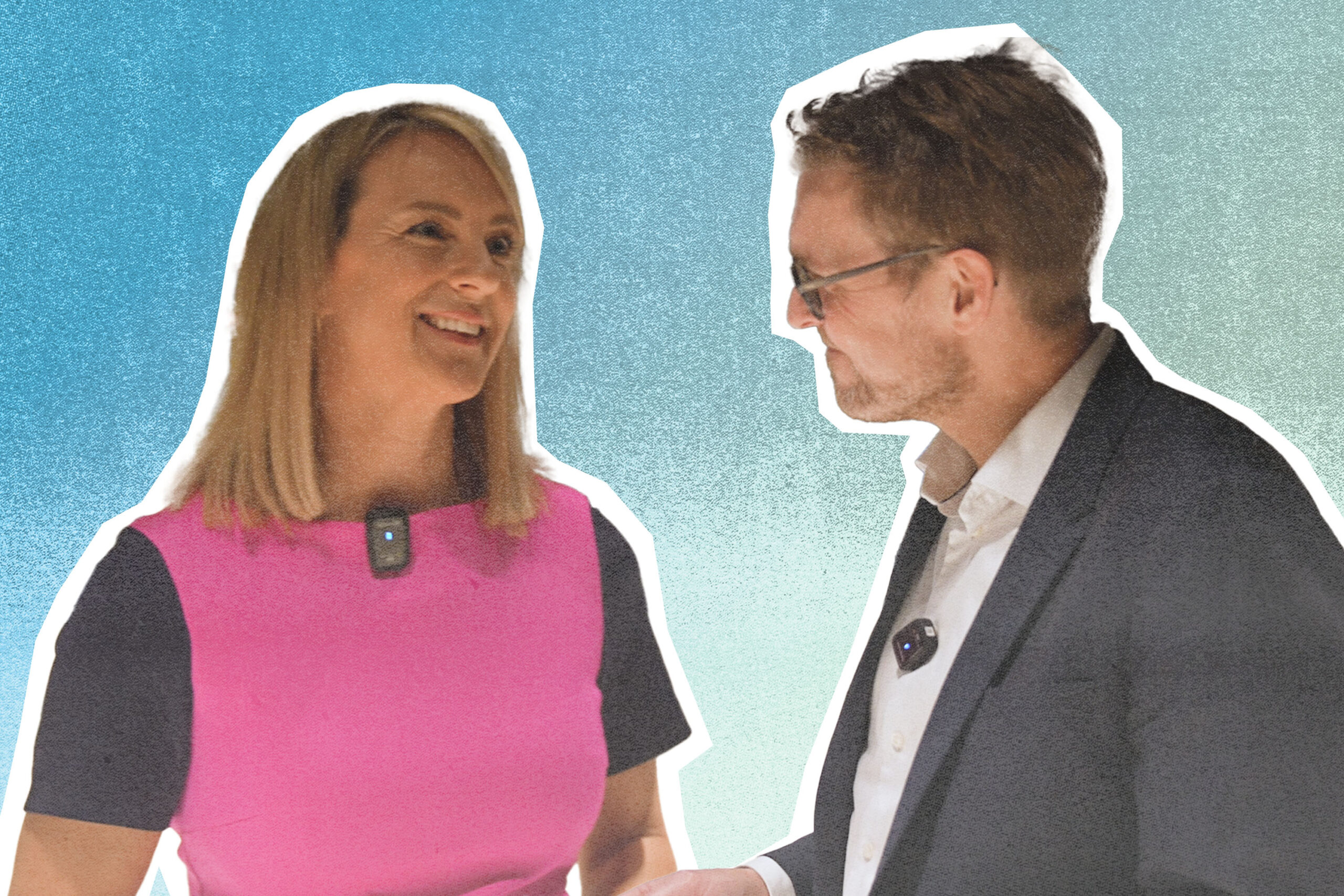Get the newest insights
Let us know your interests and get the most relevant reports, articles and events delivered straight to your inbox!
Sign up here
Both in the business world and more broadly, the importance of mindset, attitude, and psychological safety have in recent years risen up the agenda. How can we harness this knowledge and use it to build better teams and culture? Nikolaj Malchow-Møller, head of People and Purpose, discussed this with Debra Searle, adventurer and motivational speaker.

Focus on what we can control – our mindset
Pinpoint the positives
Listening is crucial. As a leader, embrace the art of speaking last
Having rowed across the Atlantic alone, Debra Searle knows a thing or two about change, challenge, and managing the unexpected. And something that she makes clear is the importance of mindset, not least when a situation is undergoing change or defined by uncertainty.
“Regardless of all the things which we can’t control when things are changing, the one thing we always have a choice about is the attitude with which we bounce back from those changes, or the challenges that we might face during the change.”
Debra Searle, adventurer and motivational speaker
In parallel, Debra is a big believer in strategies to seek to drive our mindset in a positive direction. As she told Nikolaj, she begins each day by picking an attitude for the day – listing mentally the benefits of picking one particular attitude over another.
And as she notes, embracing positivity provides a long list of tangible benefits, from providing encouragement to her team to being defined by intention, and thus, when she has completed this mental checklist, she says she often feels convinced to embrace that positive thinking.
For organisations looking to apply this more widely, Debra comes with some useful advice:
“We have this inherent, very old part of our brain, which is always looking for the dangers, always looking for the negatives. So in our team, we really try and celebrate the small wins – to train our brains to notice more of them. At the start of meetings, we might go around and ask if anyone has a small win they want to share. What happens in the meeting is that we’re then already starting from a much more positive mindset – more solution-focused rather than problem-focused.”
Debra Searle, adventurer and motivational speaker
Debra also highlighted the crucial, sometimes overlooked, skill of listening – something which, she argues, is particularly important for leaders.
“As leaders, an authority bias tends to come with us into meetings… and then, of course, nobody’s going to challenge us because we’re the leader and authority bias is already at play.”
Her solution? Be a leader that speaks last. This, she argues, gives space to diversity of thought, and gets rid of any authority bias, creating a safe space for all in the team to share their views and air their opinions.
The best leaders really invite challenge from their colleagues – by making a psychologically safe environment, where there is no such thing as an imperfect idea: all ideas need to be welcome, if we are to get the best out of diverse teams.
Let us know your interests and get the most relevant reports, articles and events delivered straight to your inbox!
Sign up here